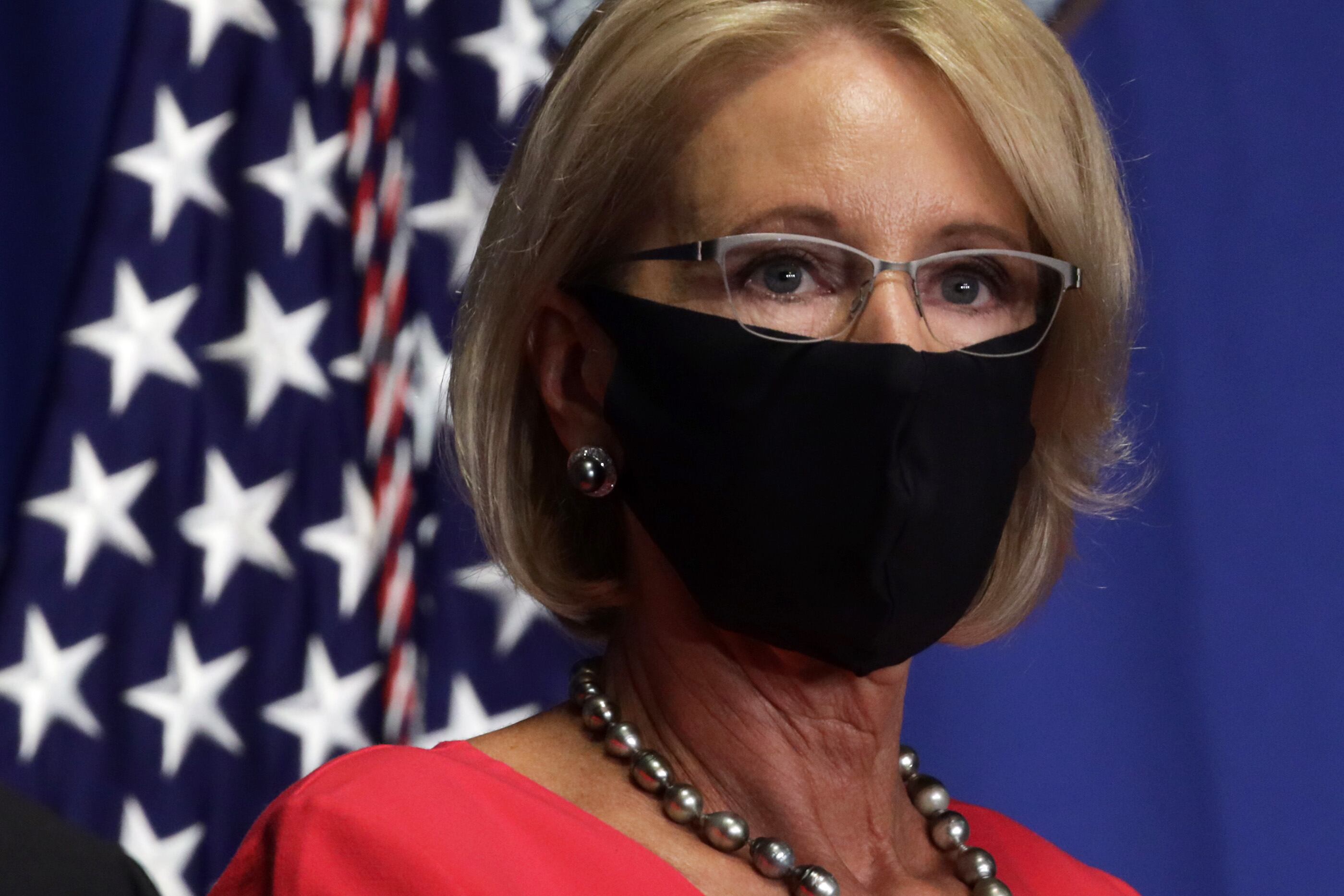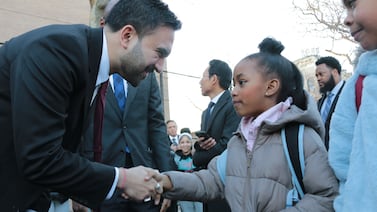Tennessee will provide grants to parents to pay for tutoring for young children. Rhode Island will expand its online courses for elementary and high school students. New York will train nearly 200,000 teachers on conducting remote instruction.
That’s how some of the 11 winning states plan to use their portion of $180 million in federal education department grants.
The grants, announced Wednesday, amount to a tiny fraction of the over $13 billion that Congress allocated to K-12 education as part of the CARES Act. But the competition has been closely watched because it appeared to be an attempt by Education Secretary Betsy DeVos to advance one of her favored policy priorities — creating alternatives to public school districts.
Only partial descriptions of the winning grants have been released, but it did not appear that any state had prioritized creating vouchers to fund private school tuition, a pet project of DeVos. The funds look to be predominantly going to support remote instruction, including through virtual programs, teacher training, and efforts to expand technology access.
That still creates something of an awkward situation for DeVos and the Trump administration, which have cajoled and threatened schools hesitant to reopen in person as COVID-19 continues to spread through the country. Just recently, Senate Republicans released a bill that would tie two-thirds of new coronavirus school aid to some form of physical reopening.
In a press release announcing the winners, DeVos did not mention this. “Ensuring every student can continue to learn during the coronavirus pandemic requires innovation from local education leaders and a laser-like focus on doing what’s right for students,” she said in a statement.
A spokesperson for DeVos said there is no inconsistency between the grants and her push for reopening.
“Data demonstrate that a return to in-person school is the best option for most students,” said Angela Morabito. “The Secretary has said that there may be exceptions to the rule, and even when those exceptions occur, that doesn’t change her belief that every student should be able to access a full-time education in the fall.”
Two states, Louisiana and Tennessee, won grants for proposals to provide “microgrants” to parents. Louisiana will use these grants to help parents of children in early grades pay for “high-quality remote instructional supports, virtual tutoring, and the devices/internet connectivity needed for those services,” a spokesperson for the state said.
Similarly, Tennessee plans to use the grants to provide “families with access to instruction and tutoring,” according to information released by the department. It was not clear if either would allow funds to pay for private school tuition. Only six states applied for — and two won — federal funding for microgrants, the fewest of any of the three eligible categories.
Meanwhile, four states — Georgia, Iowa, Rhode Island, and Texas — won grants to create or expand virtual instruction programs. Georgia, for instance, plans to use the funds to bolster its existing state-wide program that offers virtual courses.
The third category was described as going toward “models for providing remote education not yet imagined,” though in practice it seems to have been similar to the second category. Five states won: South Carolina, New York, North Carolina, South Dakota, and Maine.
South Carolina won for its plan to develop “quality digital content” and to help train teachers on how to use it. North Carolina will use the grant to train teachers and provide course material for a “blended instructional model,” meaning a combination of online and in-person instruction.
The grants were earmarked by Congress for states that were hit hardest by the pandemic without specifying the exact criteria, leaving that to the Department of Education.
All states were eligible to apply and 39 did. To comply with Congress’ intent, the department gave an edge to certain states based on their poverty rates, broadband access, and confirmed COVID-19 cases as of the end of June; states could also provide details to make the case that they had been especially affected. Most of the competition rubric, scored by external reviewers, was based on the quality and content of states’ application, though.
Some states — including Rhode Island and Texas — did not have a particularly high coronavirus burden, based on the Department’s data, but won grants anyway.






